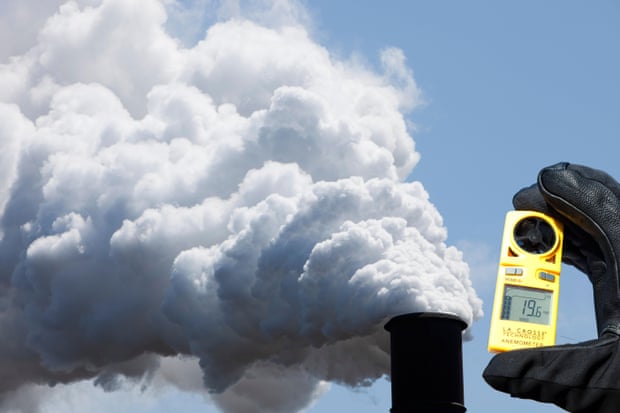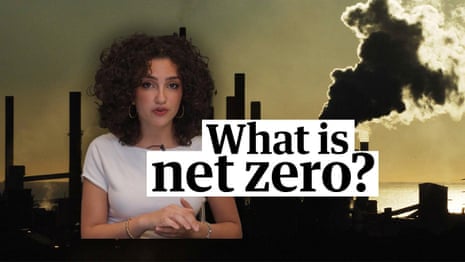The Liberal Party is poised to abandon a net zero emissions target after senior MPs advocated dumping the climate goal at a marathon meeting in Canberra on Wednesday.
The Liberal shadow ministry will gather at 9am on Thursday to resolve a position after an almost five-hour meeting in Parliament House confirmed a majority of MPs wanted Sussan Ley to follow the Nationals in walking away from the commitment.
Senior Liberal sources said of the 49 speakers at Wednesday’s meeting, 28 wanted to jettison net zero entirely, 17 expressed a desire to retain it in some form while four were on the fence.
Only Ley and the shadow energy minister, Dan Tehan, did not speak at Wednesday’s meeting, but the pair will hold a press conference after a final decision is made on Thursday morning.
Speaking to reporters after Wednesday’s meeting, Tehan refused to speculate on whether his submission to the shadow ministry would recommend dumping net zero.
He said there was “pretty much unanimity” among MPs on a set of principles to guide the party’s position, which prioritised a “stable” grid, “affordable power” and “reducing emissions in a responsible, transparent, way that ensures Australia does its fair share”.
“Obviously there was very, very passionate discussions in the room because energy and emissions reduction is an issue that everyone cares deeply about,” Tehan said.
After the shadow ministry meeting, three Liberals and three Nationals will be tasked with thrashing out a joint Coalition position, which will be put to the joint party room on Sunday.
What is net zero emissions?
Show

Net zero emissions is a target that has been adopted by governments, companies and other organisations to eliminate their contribution to the climate crisis. It is sometimes called “carbon neutrality”.
The climate crisis is caused by carbon dioxide and other greenhouse gases being pumped into the atmosphere, where they trap heat. They have already caused a significant increase in average global temperatures above pre-industrial levels recorded since the mid-20th century.
Countries and others that set net zero emissions targets are pledging to stop their role in worsening this by cutting their climate pollution and balancing out whatever emissions remain by sucking an equivalent amount of CO2 out of the atmosphere.
This could happen through nature projects – tree planting, for example – or using carbon dioxide removal technology.
CO2 removal from the atmosphere is the “net” part in net zero. Scientists say some emissions will be hard to stop and will need to be offset. But they also say net zero targets will be effective only if carbon removal is limited to offset “hard to abate” emissions. Fossil use will still need to be dramatically reduced.
After signing the 2015 Paris agreement, the global community asked the Intergovernmental Panel on Climate Change (IPCC) to assess what would be necessary to give the world a chance of limiting global heating to 1.5C.
The IPCC found it would require deep cuts in global CO2 emissions: to about 45% below 2010 levels by 2030, and to net zero by about 2050.
The Climate Action Tracker has found more than 145 countries have set or are considering setting net zero emissions targets.
Thank you for your feedback.
Ley called this week’s meetings in a bid to resolve the bitter internal dispute that has fractured the party and turned into a proxy battle for her leadership and the future direction of the Liberals.
In a show of factional force, more than a dozen conservatives who oppose net zero, including Angus Taylor and fellow leadership threat Andrew Hastie, walked side-by-side into the meeting just before 12pm.
Along with a set of guiding policy principles for MPs to endorse, Tehan proposed eight “discussion topics” to inform the debate.
Among seven questions were: should we commit to net zero as a target, a goal, an aspiration, something else, or not at all? Another asked: should we scrap Labor’s target of 82% renewables?”
The Liberal principles include “a commitment to the Paris agreement”.
But if a future Coalition government were to remain in the agreement and water down Australia’s existing pledges – including the target of net zero by 2050 – the country would breach its commitments under the international pact, which dictates countries can’t go backwards on targets.

At the meeting, senior Liberals including Taylor, deputy leader Ted O’Brien and Senate leader Michaelia Cash also argued in favour of ditching the target, with the latter urging the party to fight net zero emissions like it did the Indigenous voice to parliament referendum in 2023.
In his contribution, Hastie said a future Coalition government should be prepared to go to a double-dissolution election if the Senate blocked attempts to repeal the Albanese government’s legislated climate targets.
On the other side of the ledger, moderate Liberals Andrew Bragg, Jane Hume and Julian Leeser made the case to retain the target in some form, as did Andrew McLachlan – the party’s most pro-climate member.
The frontbencher Tim Wilson – the only Liberal to defeat a teal independent at the May election – warned the party would be isolated, including from groups such as the National Farmers Federation, if it dumped net zero.
Stopping briefly to speak with reporters after the meeting, Ley said: “Shadow ministry will convene tomorrow to resolve a final position. But it was an excellent meeting, and terrific to hear from all of my Liberal party colleagues,” she said.
The MPs mounted the arguments after the federal Liberal Party director, Andrew Hirst, presented internal research on voter attitudes toward net zero and the energy transition.
One Liberal source said Hirst told MPs that voters equated net zero with taking action on climate change.
After Ley agreed to review net zero after winning the Liberal leadership in May, right-wing MPs and activist groups such as Advance have campaigned for the Coalition to abandon the 2050 target set under Scott Morrison and kept by Peter Dutton.
The Nationals dumped their commitment to net zero emissions earlier this month, prompting senior Liberal conservatives, including Taylor, to pressure Ley to follow suit in order to keep the Coalition intact.
The right-faction’s lobbying infuriated moderate Liberals who wanted the climate target retained to avoid further damaging their prospects with younger voters and in city seats.
Bragg and fellow moderate Liberal Maria Kovacic had made veiled threats to quit the shadow ministry if the Liberals dumped its commitment to net zero and the Paris Agreement.
Wilson has also left the door open to quitting the frontbench if the party adopted the Nationals approach, which seeks to abandon domestic climate targets in favour of pegging Australia’s rate of emissions reduction to the OECD average.
After Wilson used a social media post to warn the Liberals against a “Nationals-lite” approach ahead of Wednesday’s meeting, the Nationals senator and anti-net zero campaigner, Matt Canavan, replied: “I don’t care how you rationalise it Tim. Just dump net zero and let’s take up the fight for a change!”.
The option of benchmarking Australia’s emissions reduction against the “real performance of comparable countries” was canvassed in the discussion paper.

